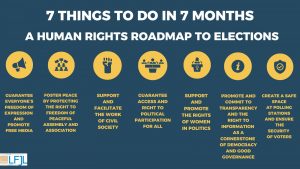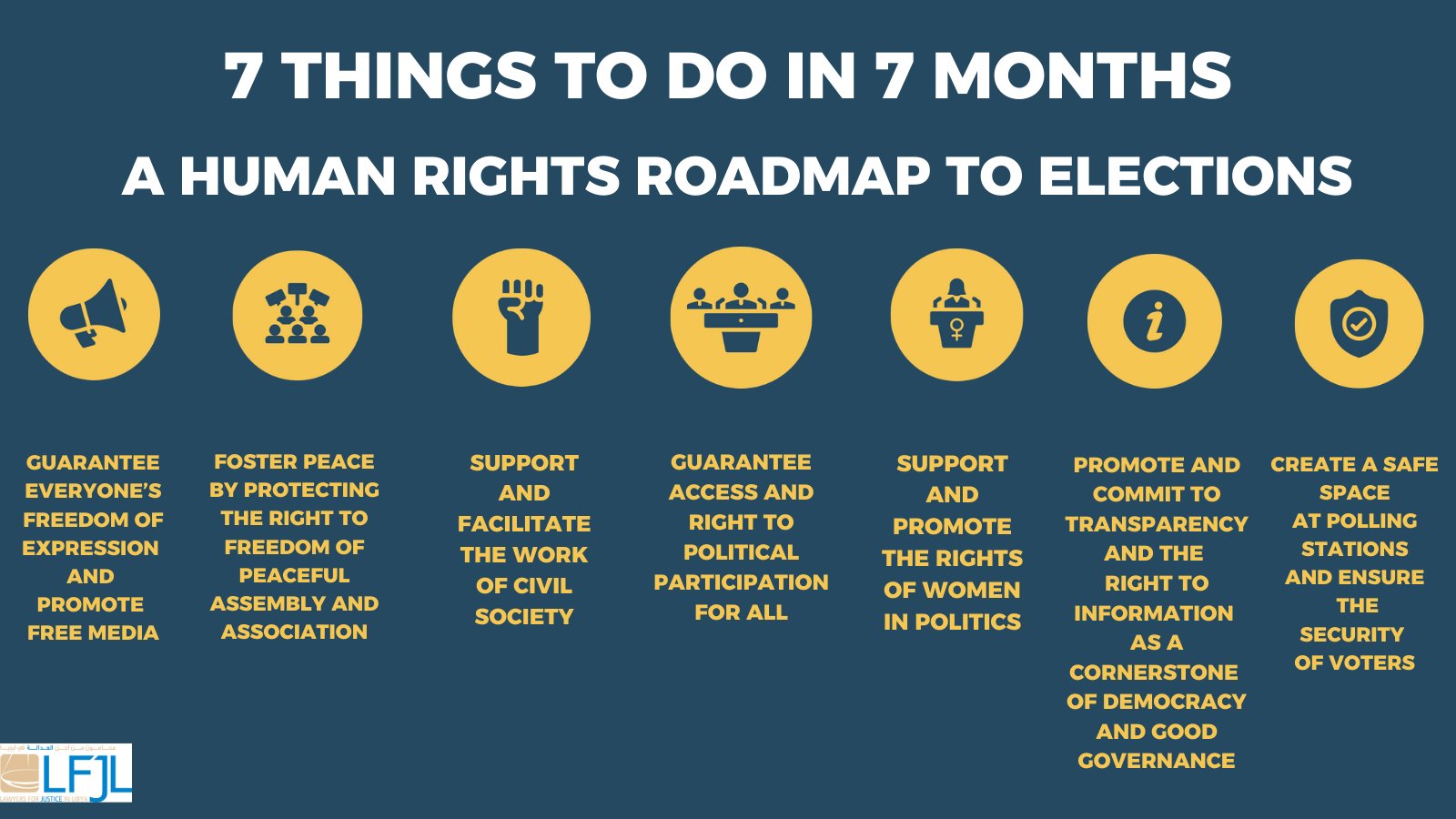By Sami Zaptia.

London, 8 June 2021:
With Libyan national elections, scheduled for 24 December 2021, approaching fast, NGO Lawyers for Justice in Libya (LFJL) say in order to guarantee free and fair elections the Libyan authorities, including the new interim Government of National Unity (the GNU), the Presidency Council and the House of Representatives (the HoR), must put human rights at the forefront.
It reminded that in February 2021, the Prime Minister and the members of the Presidency Council signed a pledge to abide by the Roadmap “For the Preparatory Phase of a Comprehensive Solution” (the Roadmap) adopted by the Libyan Political Dialogue Forum (LPDF). However, since the confidence vote granted to the GNU by the HoR on 15 March 2021, it feels little has been done to prepare for elections.
The elections are now less than seven months away and to ensure Libya is ready for election on 24 December 2021, LFJL has proposed a human rights roadmap detailing seven key human rights priorities that the Libyan authorities must tackle in the remaining months:
1. Guarantee everyone’s freedom of expression and promote free media
2. Foster peace by protecting the right to freedom of peaceful assembly and association
3. Support and facilitate the work of civil society
4. Guarantee access and right to political participation for all
5. Support and promote the rights of women in politics
6. Promote and commit to transparency and the right to information as a cornerstone of democracy and good governance
7. Create a safe space at polling stations and ensure the security of voters
Libya remains bound to comply with obligations under international human rights law
These seven areas are key priorities to be addressed in order for the elections to take place in a free and fair manner, the NGO says. However, notwithstanding the elections, the Libyan state and authorities remain bound to comply with their obligations under international human rights law.
They remain bound to promote and protect the human rights of the Libyan people in every aspect of their lives in addition to these seven areas, including by fully cooperating with and supporting the work of the various mechanisms and authorities investigating violations of international humanitarian, criminal, and human rights law in Libya.
These include the Independent Fact-Finding Mission on Libya, the International Criminal Court, and UN Special Procedures, and by providing such mechanisms with unfettered access throughout the Libyan territory.










